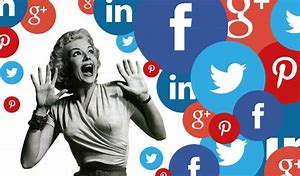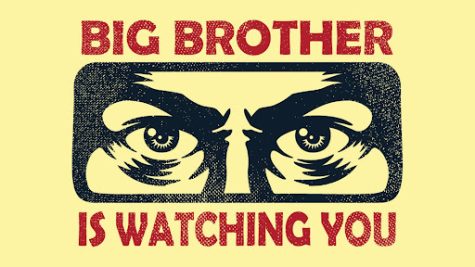Why ‘Big Brother’ Would Love the Metaverse
Social media has the potential to be a brainwash machine, breeding extreme groupthink. Can we ever escape its influence?
You are not special.
Just like billions of others, on occasion, – subconsciously or deliberately – you “do it for The Gram.”
But what happens when “doing it for The Gram” goes too far? Your innocent post, like, or follow has dangerous consequences – a silent massacre in which our brains are demolished.
Because Instagram and its social media counterparts are hotbeds for 1984-esque thought control.
It’s not an unhinged conspiracy theory, but a scientifically-proven reality – social media dilutes original thought through involuntary groupthink. You’re constantly being influenced by what you’re shown online, from political discourse to book recommendations to clothing ads. And while you may not be directly told what to think by the Party of Orwell’s 1984, you’re herded into online silos based on what you already think.
These silos, on paper, could be great, but virtual community solidarity inevitably snowballs into herd mentality based on confirmation bias. Scientists and sociologists agree: “Like-minded groups assemble with remarkable ease on social media platforms, which can also cloud our judgment…[and] the quest for unanimous opinion can override our ability to objectively consider other opinions” (Wonly 1).
What’s unique about social influence is that the power of online dissemination is all-present and all-consuming. With social media, even though you’re choosing to “follow” a person or platform, you are the one really being followed. You are constantly being fed content, even when you’re not seeking it. In other words, you don’t need to go anywhere or do anything to become enmeshed in the metaverse. It’s a passive process, and that’s what makes it so dangerous.
This constant influx of content that you’re shown – content that is specifically tailored for you – has the ability to control your thoughts, shaping your identity. This molding of the brain, however, is contingent on a dumbing down of it first. A study by the Journal of the Royal Society Interface came to the conclusion that “[Forms of media] could be supplying answers and insights without requiring any actual thinking, so that your analytic powers begin to waste away like an unused muscle” (Time).
But brain numbing is not the ultimate goal. The true intention is much more reminiscent of 1984: “Orthodoxy means not thinking–not needing to think. Orthodoxy is unconsciousness” (Orwell 53). Because when other people do the thinking for you, you do become unconscious, losing the self-awareness necessary to make intelligent decisions. You lack perspective and depth, become even more impressionable, and only see things at surface value. Now comes the real fun: once you’re “unconscious,” you begin to search for your clique, starving for cognitive guidance.
Humans have tribal instincts, and it’s normal to seek out community, but you become vulnerable to extreme influence when you self-isolate, or “algorithm-isolate.” I wish that my great aunt’s “Trump 2024” Facebook group or my friends’ Tik Tok Leftist “Hypehouses” could be educational and productive. But on both sides, it’s far too easy to be swayed by a false statistic, and even if it’s not the “fake news media,” the dearth of nuance and requirement for a black or white answer creates division where there should be discussion. You’re forced into a camp–you must choose a side–and there’s no room for individual thought.
It’s not our fault–it’s simply evolutionary. Plenty of studies have proved that people by nature are wired to be influenced because it’s easier to follow others than to think for ourselves. Social media only exacerbates and takes advantage of weaknesses like this. One study focusing on the effects of Twitter bots illustrated: “…when a critical mass of bots pushed the idea, human participants also started adopting it” (Blanding). Sounds like unconsciousness to me.
 The god-like “influencers” who have emerged on social media also play on our susceptibility to blindly follow others. And their title is ever so fitting as they do influence our thoughts: #TheYoungRepubs + Ben Shapiro, #TheDunkins + Charli D’amelio, #TheWhiteDads + Joe Rogan…(I could go on). With millions of impressionable followers at their beck and call, what’s the difference between these supreme figureheads and 1984’s Big Brother?
The god-like “influencers” who have emerged on social media also play on our susceptibility to blindly follow others. And their title is ever so fitting as they do influence our thoughts: #TheYoungRepubs + Ben Shapiro, #TheDunkins + Charli D’amelio, #TheWhiteDads + Joe Rogan…(I could go on). With millions of impressionable followers at their beck and call, what’s the difference between these supreme figureheads and 1984’s Big Brother?
There is none.
Disturbingly, the parallels between Orwell’s world and our virtual one continue beyond influencer-driven idiocracy. Even when divided into so many categories, various internet silos and their “leaders” are brought together by a common enemy. Today, we call it “cancel culture,” in days past we called it schadenfreude – taking pleasure in seeing someone fall from grace. In Orwell’s dystopia, it’s referred to as the “Two Minutes Hate.” There’s really no distinction; each just preys on human nature’s worst attribute – our love for hatred. Possibly, the only difference between the two is that cancel culture relies on voluntarily induced propaganda, not a mandatory daily screening like in 1984.
However, how free are we to “choose” to be a part of social media given that it’s integral to our social culture? Are we not just as bound to our feeds as the subjects in Orwell’s dystopia? Fighting the urge — saying no to socials, going off the grid — proves practically impossible if you want to function socially, network, or grow a personal brand in today’s world.
And once you succumb to it, your individualism is lost, and you’re no different than the brainwashed masses in 1984. You exist solely as a category – a market segment. The algorithms, the “FYP’s,” the explore pages; they’re omnipotent, and you’re insignificant.
One of Orwell’s characters says: “Power is in tearing human minds to pieces and putting them together again in new shapes of your own choosing” (266). Nowadays, you don’t need an army or a torture facility or a surveillance system to dismantle individual thought. All you need is a smartphone and a couple of social media apps.
—
Works Cited
Blanding, Michael. “The Power of Groupthink: Study Shows Why Ideas Spread in Social Networks: Haas News: Berkeley Haas.” Haas News | Berkeley Haas, 9 Feb. 2021, https://newsroom.haas.berkeley.edu/research/the-power-of-groupthink-study-shows-how-easy-it-is-to-influence-social-networks/. Accessed 3 April 2022.
Inc. “Social Media Is Making You Stupid.” Time, Time, 21 Feb. 2014, https://time.com/9207/social-media-is-making-you-stupid/#:~:text=But%20for%20individuals%2C%20the%20implications,away%20like%20an%20unused%20muscle. Accessed 3 April 2022.
Orwell, George. 1984. New York: Signet Classics, 1950.
Wolny, Nick. “Science Explains Why We’re so Much More Bold Online, Especially Now.” Fast Company, Fast Company, 11 Aug. 2020, https://www.fastcompany.com/90538459/science-explains-why-were-so-much-more-bold-online-especially-now. Accessed 3 April 2022.

